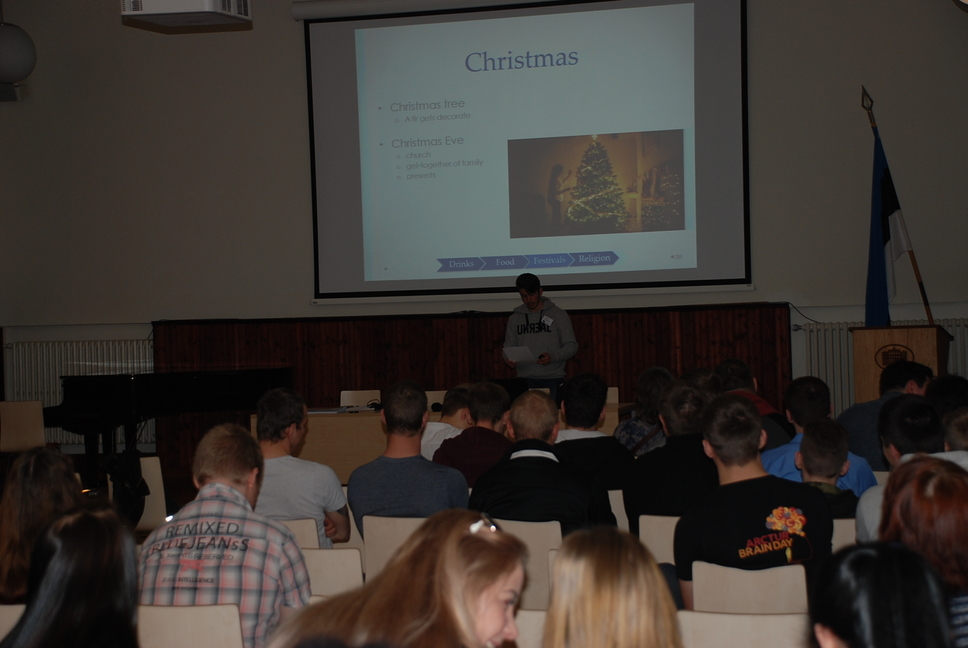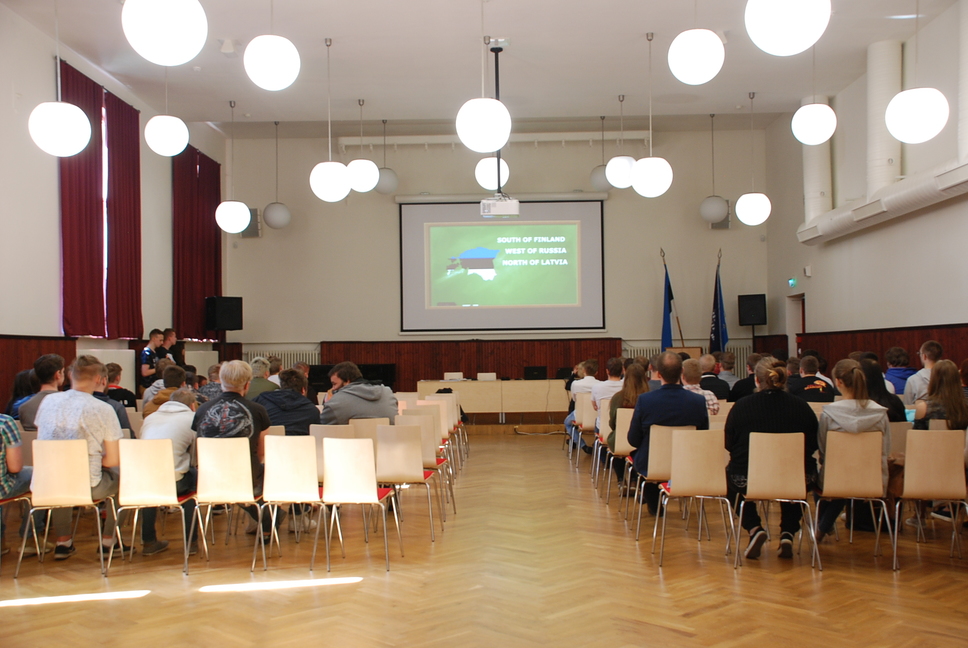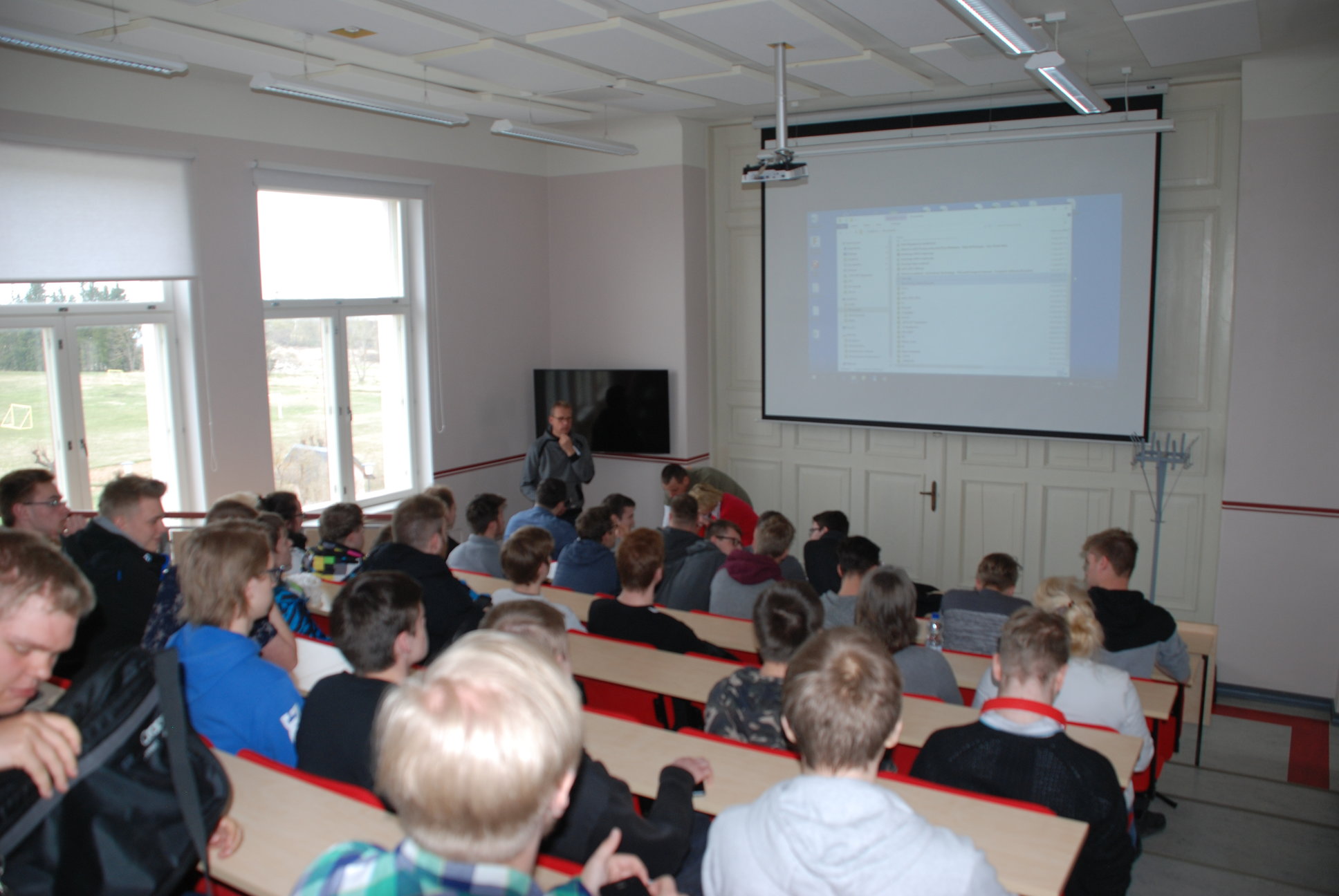 Monday
Monday
On the first day in Rakvere students could start off by taking a tour of our partner school's premises. German students stayed in the school's dormitary and ate in the school cafeteria, which was really great.
Then students continued work on the project unit "internet crime". After having worked online for months on several presentations about the topic internet crime, they were glad that they could finalize presentations in their international teams face-to-face. They worked really hard and prepared different presentations for each sub-topic aimed at IT students. Some teams delivered their presentations for IT students in the afternoon. All IT students attending Rakvere vocational college attended this presentation session. Students then decided that the wider public should also benefit from project results. This is why they decided it would be useful to simplify their presentations so that a wider audience consisting of non-IT students could benefit from the results. All presentations for non-IT students will be recorded as a video as well, so that they are accessibe later on for more people at both colleges. Students also started drawing up questions and answers to be entered in a computer-based training programme. Using this computer-based training programme, students and teachers interested in this topic can test their knowledge after having listened to the presentations.
Tuesday
On the second day of our seminar in Estonia, students went to Tartu, the intellectual and cultural capital of Estonia. Everyone had been looking forward to this trip. In the morning, students had the opportunity to take part in a workshop about “friendly trolling”. Supervisors from University of Tartu explained to students how to programme a “friendly virus”, which they enjoyed doing. Then, they could participate in a lecture about practical cyber defence by a PhD student. This was really interesting, since students can use the knowledge they gained for their own project work.
After lunch, students visited the Estonian company Playtech. They were first introduced to the company in general and then they listened to a presentation about data security by a company representative who is in charge of security issues in the company. Students also received a tour of the office so that they could familiarize themselves with the working environment in an IT-company in Estonia. In the afternoon, all participants visited Estonian National Museum in Tartu. They took part in a guided tour and could learn more about Estonian language, culture and history. They also learned that both countries have some common roots.
This was a really long day and we had a tight schedule, but students and teachers really enjoyed it.
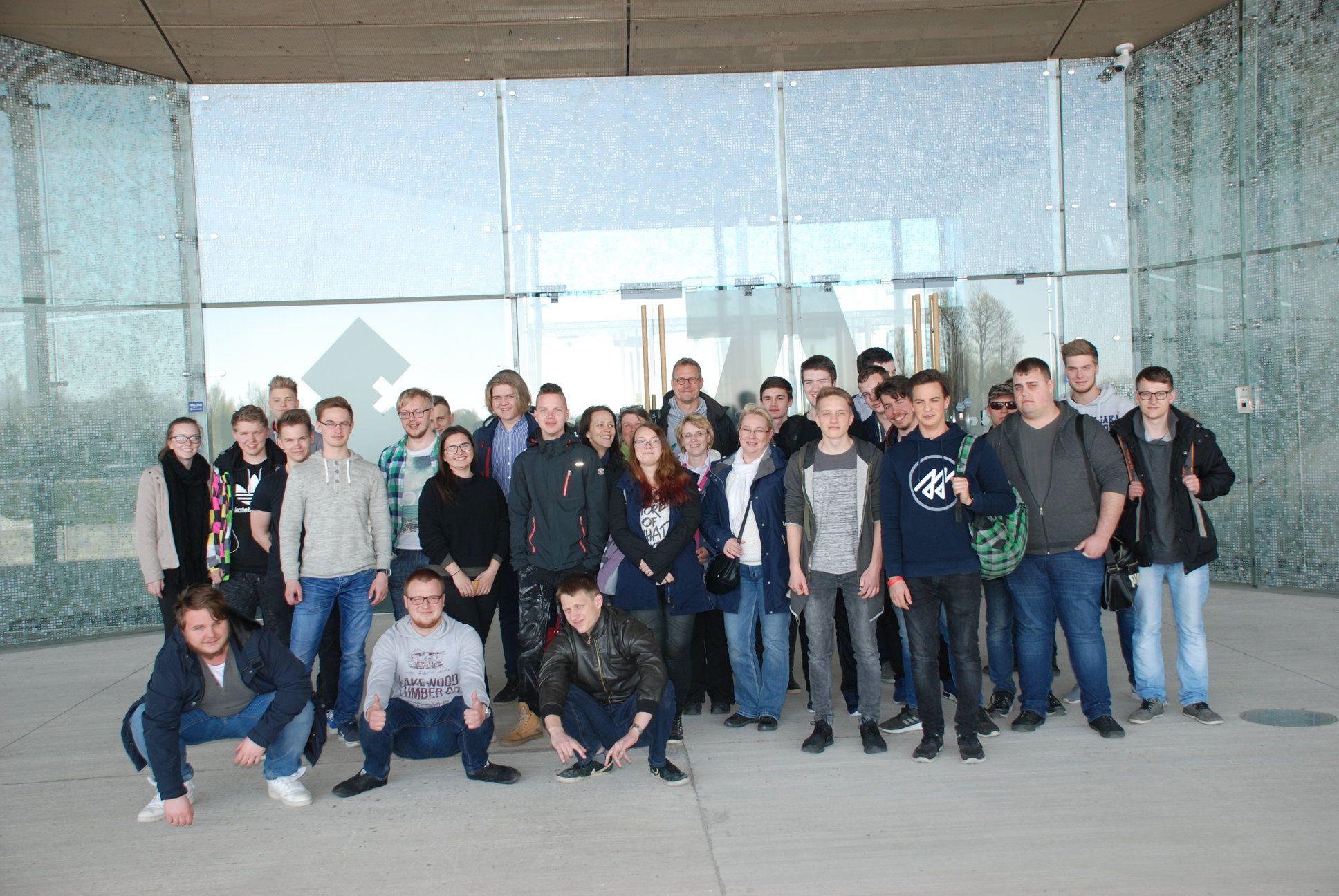
Wednesday
As several international teams had worked on diverse topics concerning computer crime, there were two groups left who presented their results in the morning. They delivered quite a comprehensive overview of the topic, as the audience consisted of mostly IT students. Afterward students worked on their presentations for non-IT students. After that, students engaged in another working session together with their German/ Estonian counterparts and continued writing questions, answers and explanations in English, German and Estonian for our computer-based training programme. This was quite a challenging task for all students, as they really had to discuss what to include in the computer-based training.
For lunch, some students prepared a traditional Estonian dessert, Kama, for the entire group. After lunch, the group started working on the next project unit, “identity protection in digital environment”. As agreed to in the project plan, the German group had prepared the first project stage, “planning”, of this project unit. They used professional project management tools such as a project charter, task list, functional specification and milestones to plan, and they presented the result to all students involved in the project. This session also served as a common learning session where Estonians were introduced to German project management tools and standards. Then both groups engaged in a decision-making session based on planning results and decided how to implement the project in the second year. Both groups will work on an interactive webpage on the topic “identity protection” and share the workload because this project is too comprehensive for either of the colleges to manage on their own.
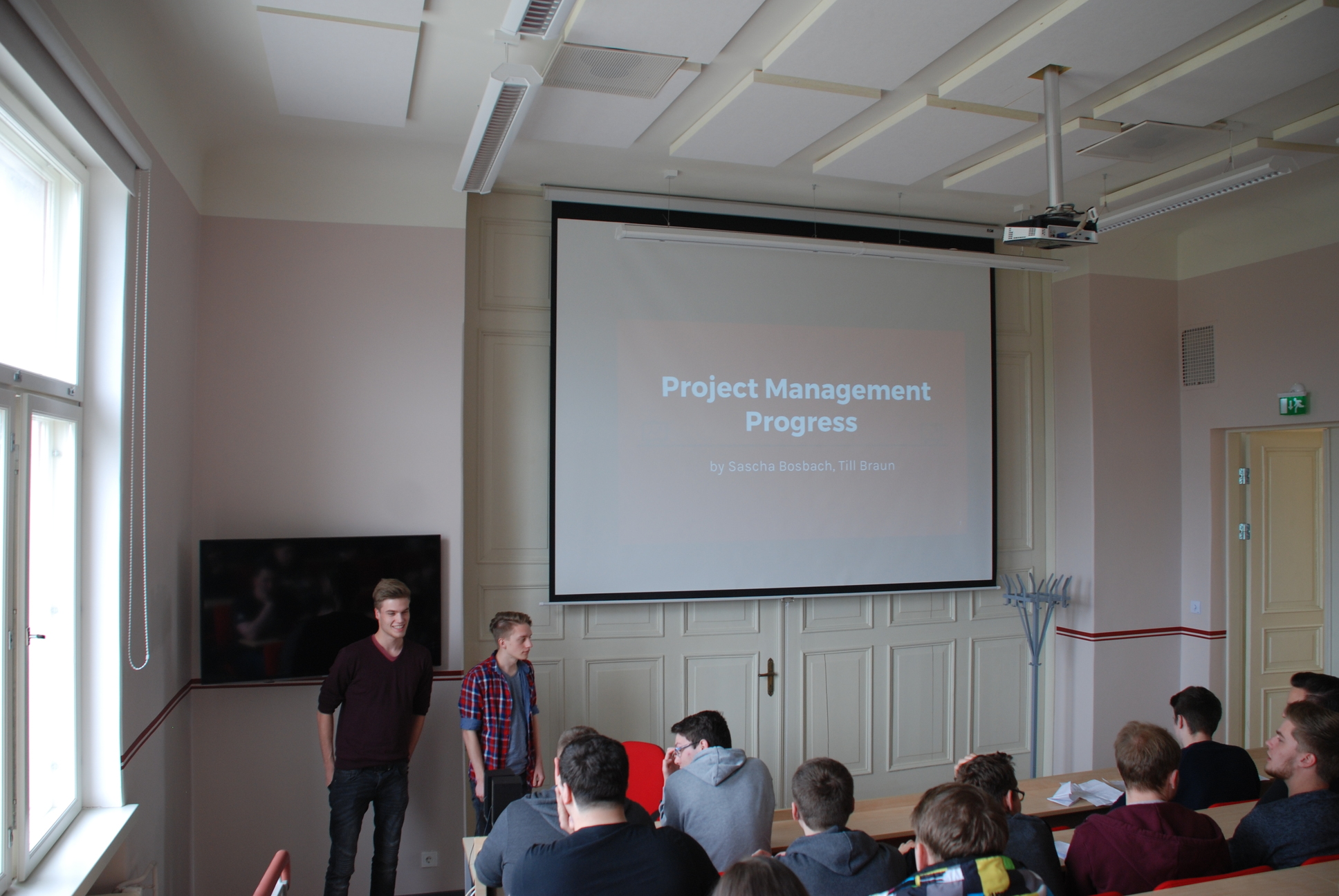
Thursday
In the morning, the computer-based training programme was introduced to and tested by users. A group of both IT and non-IT students tested the programme and gave feedback using an online questionnaire that had been prepared in advance. This survey was then analysed by the team responsible for it.
In the afternoon, all students involved worked on different tasks and topics in international teams. They rehearsed for the dissemination event on the next day. They also started work on the project unit “social networks” in small teams and finalized work on the project unit “internet crime.”
Both project managers, Katre Lomp and Sabine Hoffmann, were invited to attend the First Day of Internationalisation in Estonia in Pärnu. There they participated in a panel discussion about internationalisation of vocational education. They talked about the project and the advantages, challenges and impact of international projects.
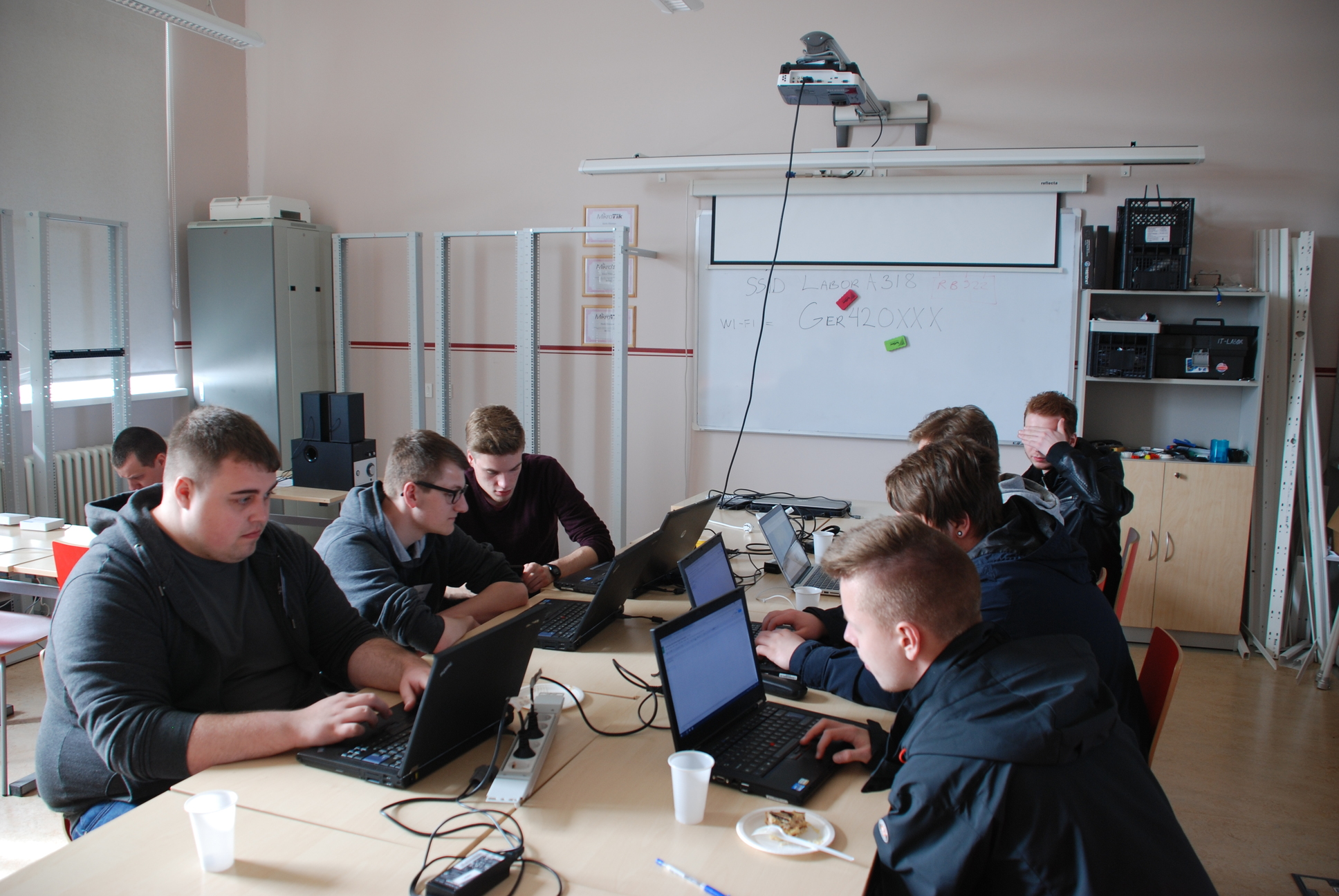
Friday
Estonian students had prepared and organised a dissemination event at Rakvere College. All students and staff interested in the project results were invited to attend this event. The objective of this event was to present the achievements the first project year.
After lunch, students and teachers engaged in an evaluation session. As this was almost the end of the first project year, we had to evaluate not only the project units we worked on, but also the work process. We engaged in a group interview to find out more about what had changed due to participation in international project work. We focussed in particular on changes with regard to team work and intercultural, language and project management skills.
The day ended with a cultural programme in Rakvere Castle where we went back to 16th century and learned about the lives of knights in Estonia. We even had the possibility to visit “hell”.
All international teams profited enormously from this face-to-face working session, because they could discuss their results in person and engage in innovative brainstorming and decision-making sessions.
